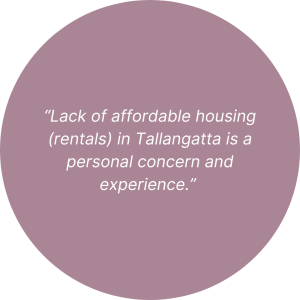What is participatory democracy?
Participatory democracy is more than voting for a candidate at election time. It’s about engaging with the political system and the people behind that system, to contribute ideas and express what we need from our elected representatives – outside of ‘business as usual’ politics.
Democracy is built on civic participation. Politicians and governments need to hear from people and organisations in the community to understand how they can best represent community needs. Community members can be empowered by the realisation that they have valuable knowledge to share in the formation of policy and priority areas. We want our elected representatives to seek more than our votes – we want them to seek our wellbeing, health and happiness.
This election period, WHGNE has joined with the other Victorian Women’s Health Services in a campaign to highlight issues of gender equality and health equity. These are the issues we advocate and educate around daily. We feel deeply passionate about advancing equality and equity in our communities and in Victoria.
So that’s us! But what about you? Our organisation aims to represent the needs and elevate the voices of women and gender diverse people living and working in northeast Victoria and the Goulburn Valley – the region we serve. With that in mind, we recently undertook the Hearing Benambra Community Consultation Project, to find out what matters to people in northeast Victoria.
How did we go about Hearing Benambra?
The Victorian state election will be held on Saturday 26 November. This provided the impetus to facilitate a little participatory democracy with communities in our region. Because a number of events around community and wellbeing were scheduled to occur in Benambra during our project period, we chose to focus on this district when collecting responses. Our question was simple: What would people in Benambra like to see prioritised by the State Government?
WHGNE talked directly to women from the community, and also provided postcards for respondents to fill out in their own time. We asked about their hopes and priorities in the context of the state election.
The areas we heard about the most were housing, the environment, education, integrity, transport and gender equality. Other issues mentioned included healthcare, cost of living, apprentice wages, Indigenous rights and voice, the need for a new hospital for Albury Wodonga, and specific attention to women’s, and mental health.
All together we engaged with 33 people, most of whom resided in Towong Shire and Wodonga. Here’s some of what we heard:




Great! But what did we do with the information?
We sent it to local candidates standing for election in Benambra, of course! We created a space for each priority area mentioned above and asked the candidates how they planned to address these issues, if elected.
Having sent the results of our consultation to the seven candidates standing in the Benambra electorate, we received three responses – from Mike Fuery (Animal Justice Party), Luke Brady (Greens) and Jacqui Hawkins (Independent).
We didn’t hear from either the Labor or Liberal Party candidates, nor those representing Family First, the Freedom Party or the Liberal Democrats.

